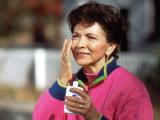Caring for Patients with Melanoma and Other Skin Cancers - CCO SPOC

Jonathan Sorah, MD, focuses on the work-up, staging, and treatment of advanced melanoma with a focus on the use of immunooncology through a combination of didactics and cases.
Category
- NC Community College Oncology
Format
- Self-Paced, Online Courses
Credits
- 1.00 Participation
Cost $0.00
Caring for Patients with Genitourinary Cancers - CCO SPOC

An overview of genitourinary oncology, including a discussion of prostate, bladder, kidney, and testis cancers and associated oncology-related professions, as well as a discussion of the needs specific to genitourinary oncology patients.
Category
- NC Community College Oncology
Format
- Non-Credit Course
Credits
- 1.00 Participation
Cost $0.00
Caring for the Patient with Breast Cancer - CCO SPOC

What is breast cancer and how do oncology professionals care for patients with this disease? Amy Depue, RN, MSN, OCN, CBCN, will provide an overview of breast cancer and showcase current practices in care.
Category
- NC Community College Oncology
Format
- Self-Paced, Online Courses
Credits
- 1.00 Participation
Cost $0.00
Caring for Patients with Head and Neck Cancers - CCO SPOC

Trevor Hackman, MD, FACS, and Catherine J. Lumley, MD, will discuss who makes up the head and neck cancer population and review work-up and staging for head and neck cancers.
Category
- NC Community College Oncology
Format
- Self-Paced, Online Courses
Credits
- 1.00 Participation
Cost $0.00
Caring for Patients with GI Cancers - CCO SPOC

Melanie N. Allard, DNP, APRN, FNP-BC, AGAC-NP (student), will review basic gastrointestinal tract anatomy and discuss gastrointestinal cancer(s), workup, and treatment. She will differentiate between each disease type specifically with signs/symptoms, statistics, and management, and help attendees to recognize common side effects of treatment and management of symptoms.
Category
- NC Community College Oncology
Format
- Self-Paced, Online Courses
Credits
- 1.00 Participation
Cost $0.00
Caring for Patients with Lung Cancer - CCO SPOC

Care of the patient with lung cancer from the time of symptom presentation to the time of starting treatment. Chaely Medley, AGNP-C, will provide a brief overview of the types of lung cancer and broad coverage of types of treatments and symptoms associated with these therapies.
Category
- NC Community College Oncology
Format
- Self-Paced, Online Courses
Credits
- 1.00 Participation
Cost $0.00
Oncology Nutrition - CCO SPOC

Inadequate nutrition in the setting of cancer can lead to weight loss, malnutrition, difficulty tolerating treatment and/or a decrease in overall quality of life. Ashley Bradshaw, MS, RD, CSO, highlights the importance of proactive nutrition interventions to help improve patient outcomes.
Category
- NC Community College Oncology
Format
- Self-Paced, Online Courses
Credits
- 1.00 Participation
Cost $0.00
Oncology Career Pathways - CCO SPOC

Come explore career options in nursing, pharmacy, radiology, and cancer registry with professionals in the field. The presenters will highlight career paths that are opened by earning an Associates Degree.
Category
- NC Community College Oncology
Format
- Self-Paced, Online Courses
Credits
- 1.00 Participation
Cost $0.00
Caring for the Patient with Hematologic Cancers: Leukemia, Lymphoma, and Multiple Myeloma - CCO SPOC

We will provide an introduction to blood cancers including risk factors, epidemiology, presenting symptoms, general treatment, and caregiver and survivorship issues.
Category
- NC Community College Oncology
Format
- Self-Paced, Online Courses
Credits
- 1.00 Participation
Cost $0.00
Gynecologic Cancers: A Team Approach to Women’s Health Care - CCO SPOC

Daniel Clarke-Pearson, MD, and Lyn Filip, RN, BSN, OCN, will discuss the multidisciplinary management and care of women with gynecologic cancers (cervix, uterine and ovarian cancer).
Category
- NC Community College Oncology
Format
- Non-Credit Course
Credits
- 1.00 Participation
Cost $0.00

 Facebook
Facebook Twitter
Twitter LinkedIn
LinkedIn Forward
Forward